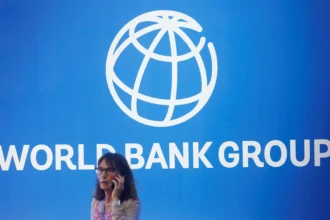The prospect of a global war would inevitably affect Africa in complex ways, shaped by its diverse economies, political landscapes, and social dynamics. Here’s a balanced look at the potential pros and cons of how the African continent might respond and be impacted by a world war.
Pros
1. Increased Strategic Importance
During a global conflict, Africa’s vast natural resources—such as minerals, oil, and agricultural products—could become crucial for war economies. This might lead to increased foreign investment and partnerships as global powers seek to secure supply chains.
2. Economic Stimulus in Some Sectors
Certain African industries, like mining, energy, and agriculture, may experience growth driven by global demand for raw materials. Infrastructure projects and military-related contracts could also create jobs and boost local economies.
3. Accelerated Political Alliances and Cooperation
Facing external pressures, African nations might strengthen regional cooperation and form new political and military alliances to protect their interests, leading to greater continental unity and influence in global affairs.
4. Opportunities for Peacebuilding and Mediation
Africa, often seen as a neutral ground, could emerge as a mediator in global conflicts, hosting peace talks or diplomatic negotiations, thus raising its geopolitical profile.
Cons
1. Economic Disruption and Food Insecurity
Global conflicts often disrupt trade routes and supply chains. Many African countries rely heavily on imports for food and essential goods, making them vulnerable to shortages, inflation, and famine during wartime.
2. Political Instability and Conflict Spillover
World wars often exacerbate internal conflicts. Fragile states might see increased violence or civil unrest, fueled by external actors or competition over scarce resources. Proxy wars could spread, worsening regional instability.
3. Humanitarian Crises and Displacement
Conflict-driven instability could trigger mass displacement, refugee flows, and humanitarian emergencies. Healthcare and social services, already stretched thin in many regions, may collapse under increased demand.
4. Environmental and Infrastructure Damage
Although Africa might not be a direct battlefield, global wars can still cause collateral environmental damage, destruction of infrastructure from targeted attacks, or sabotage of critical assets like pipelines and ports.
5. Neglect by Global Powers
During a world war, global attention and aid might focus on major conflict zones, sidelining African development priorities. This could stall progress on poverty reduction, education, and healthcare.
Conclusion
A world war would present both opportunities and challenges for Africa. While some sectors and political dynamics might benefit from increased global focus and demand, the continent’s vulnerability to economic shocks, instability, and humanitarian crises could deepen. How African nations respond—through unity, strategic diplomacy, and resilience—will be critical in determining the overall impact.






